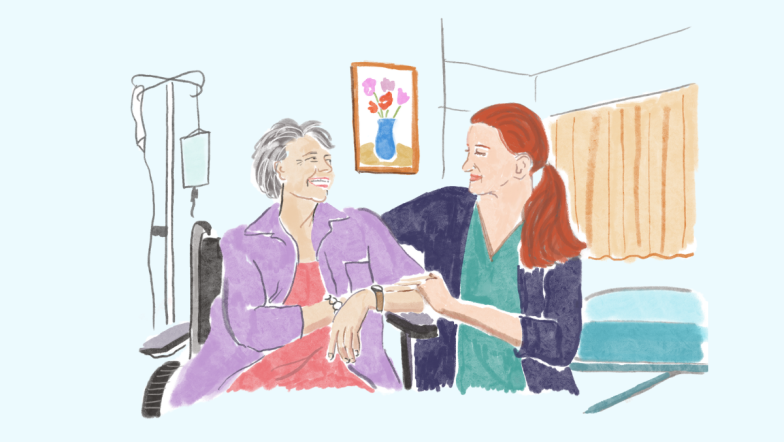In the age of #metoo, volunteers should not be victims
28 Feb 2019
Media release
28 February 2019
It’s appalling that in 2019 federal equal opportunity laws do not prohibit sexual harassment of volunteers. When this federal gap is combined with gaps in other jurisdictions, it means that people who volunteer their time in Western Australia and the Northern Territory currently have no recourse under equal opportunity laws if they are sexually harassed on the job. This needs to change.
Today, Justice Connect and Volunteering Australia have come together to call for stronger, nationally consistent protections for volunteers and unpaid workers facing sexual harassment in the workplace.
In a submission to the Australian Human Rights Commission’s inquiry into sexual harassment in the workplace, the two organisations have stated that all workers, including volunteers and other unpaid workers (such as those participating in work for the dole, internships and community service), should be given full legal protection from sexual harassment. This includes a duty on organisations to take steps to prevent, identify and respond to sexual harassment in all its forms.
“Workplace sexual harassment is one of a range of rights-based issues and legal gaps that volunteers experience. This inquiry provides an important opportunity to address the inequities in the law and ensure volunteers are protected from workplace sexual harassment,” said Adrienne Picone, CEO of Volunteering Australia.
“Volunteers are particularly vulnerable to workplace sexual harassment, without an impetus to have policies and procedures, and a formal avenue to channel complaints. Volunteers deserve to be treated with dignity and respect, and we hope that these reforms bring about a parity of esteem between paid employees and volunteers,” said Ms Picone.
“If you’re paid for your labour, the law can protect you from harm. But some volunteers and unpaid workers are currently falling through the gaps – particularly in NT and WA, where it’s not unlawful to sexually harass a volunteer.” said Chris Povey, CEO of Justice Connect.
“It’s time to fix this gap. It’s time to give all workers – paid and unpaid – legislated protection from sexual harassment. But we can and should go further; we must enshrine in law the responsibilities of organisations to take action to protect their volunteers and other unpaid workers from sexual harassment in all its forms,” said Mr Povey.
In addition to these critical and overdue changes to anti-discrimination laws, the submission calls for government to provide education, training and resources around volunteers’ rights, and require all organisations to have policies and procedures for preventing, identifying and responding to harassment of volunteers.
It also calls for the establishment of a national service to provide information, emotional support, advice and confidential referrals for volunteers who have experienced sexual harassment.
This submission was prepared after an anonymous survey which received over 300 responses from volunteers. Among them was an overwhelming call for protections, as well as feeling unsupported and considered ‘less than’ paid staff.
“Volunteers continue to be overlooked in policy and funding by key decision makers time and time-again. This is the chance to pay attention to our enormous, passionate workforce of volunteers. It’s time that government, business leaders and organisations who work with volunteers step up on sexual harassment,” said Ms Picone.

Anonymous quotes from the Volunteering Australia/Justice Connect survey
- “As a woman without paid employment, I cannot access the same protections or avenues of conciliation as my employed counterparts. It also creates a strange duality for the working woman: protected in the context of employment but outside of that realm, she’s fit for harassment.”
- “We are not made to feel as if we can complain because we aren’t getting paid – we’re expected to be fine with any conditions we experience.”
- “Efforts at securing respect for women must be felt throughout the whole of Australian communities and not limited to the confines of boardrooms and office space.”
- “All people working within an organisation have the right to feel safe and be respected, regardless of whether they are paid for their service or not. Organisations have a duty of care to both their staff and volunteers and must also comply with all relevant regulations. The rights of volunteers should be similar to those of employees, even if they are implemented under a different regulatory framework. Being a volunteer should not leave a person who experiences sexual harassment with no legal recourse.”
The recommendations:
- All workers, including volunteers and other unpaid workers, should be given full protection from sexual harassment in Commonwealth, State and Territory laws. This legal protection should include a positive duty on organisations to take reasonable steps to prevent, identify and respond to sexual harassment in all its forms.
- The establishment of an appropriate national service to provide information, emotional support, advice and confidential referrals for volunteers who believe they have experienced sexual harassment and other breaches of their rights while volunteering – to do this the federal government should fund a scoping study.
- The changes in law (Recommendation 1) should be accompanied by education initiatives to inform Volunteer Involving Organisations of their responsibilities and support them to take measures to fulfil their obligations to protect volunteers, unpaid workers and employees equally from sexual harassment.
- Mandatory policies and procedures for preventing, identifying and responding to sexual harassment should be put in place for all Volunteer Involving Organisations. These should reflect a current understanding of sexual harassment, including online behaviour, and should be consistent across jurisdictions and in line with the National Standards for Volunteer Involvement.
- Policies and procedures should be supported by information, training and resources on how to interpret, implement and review
them.


